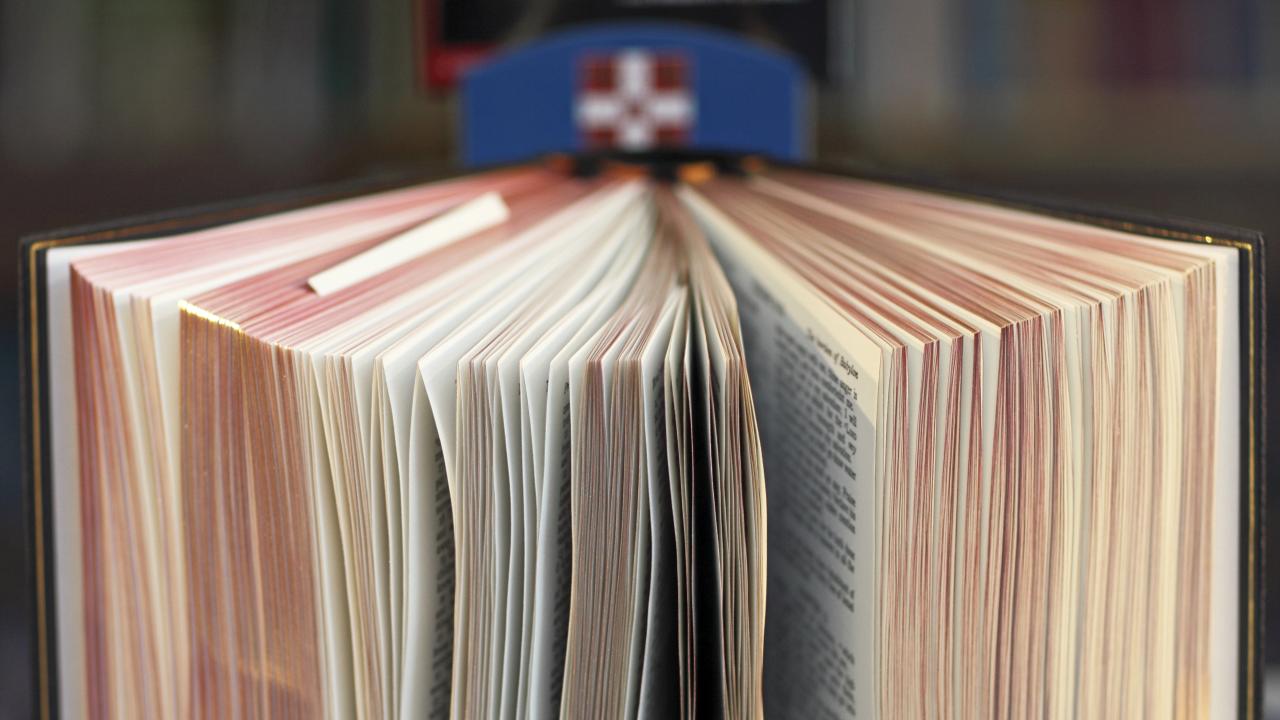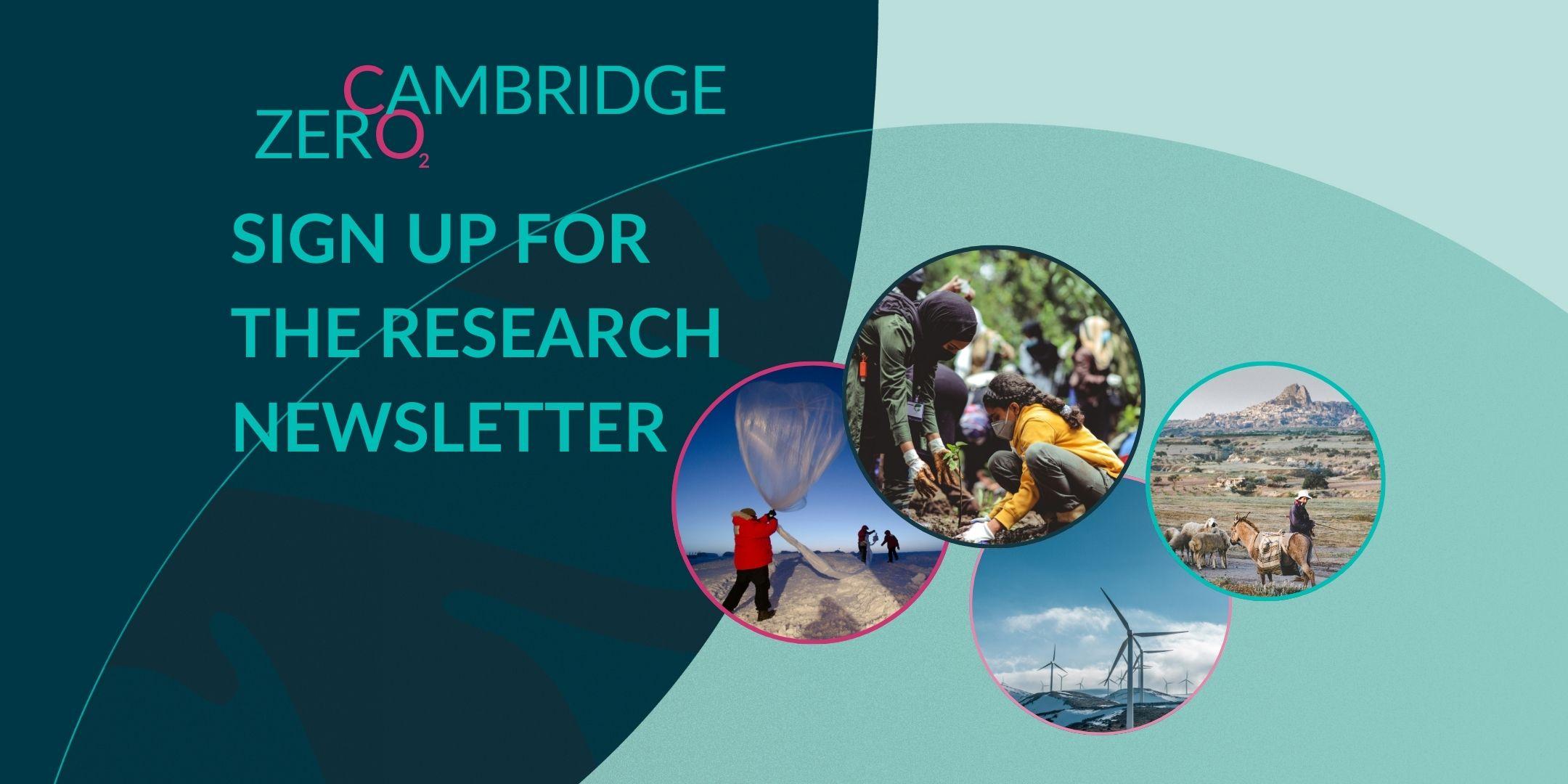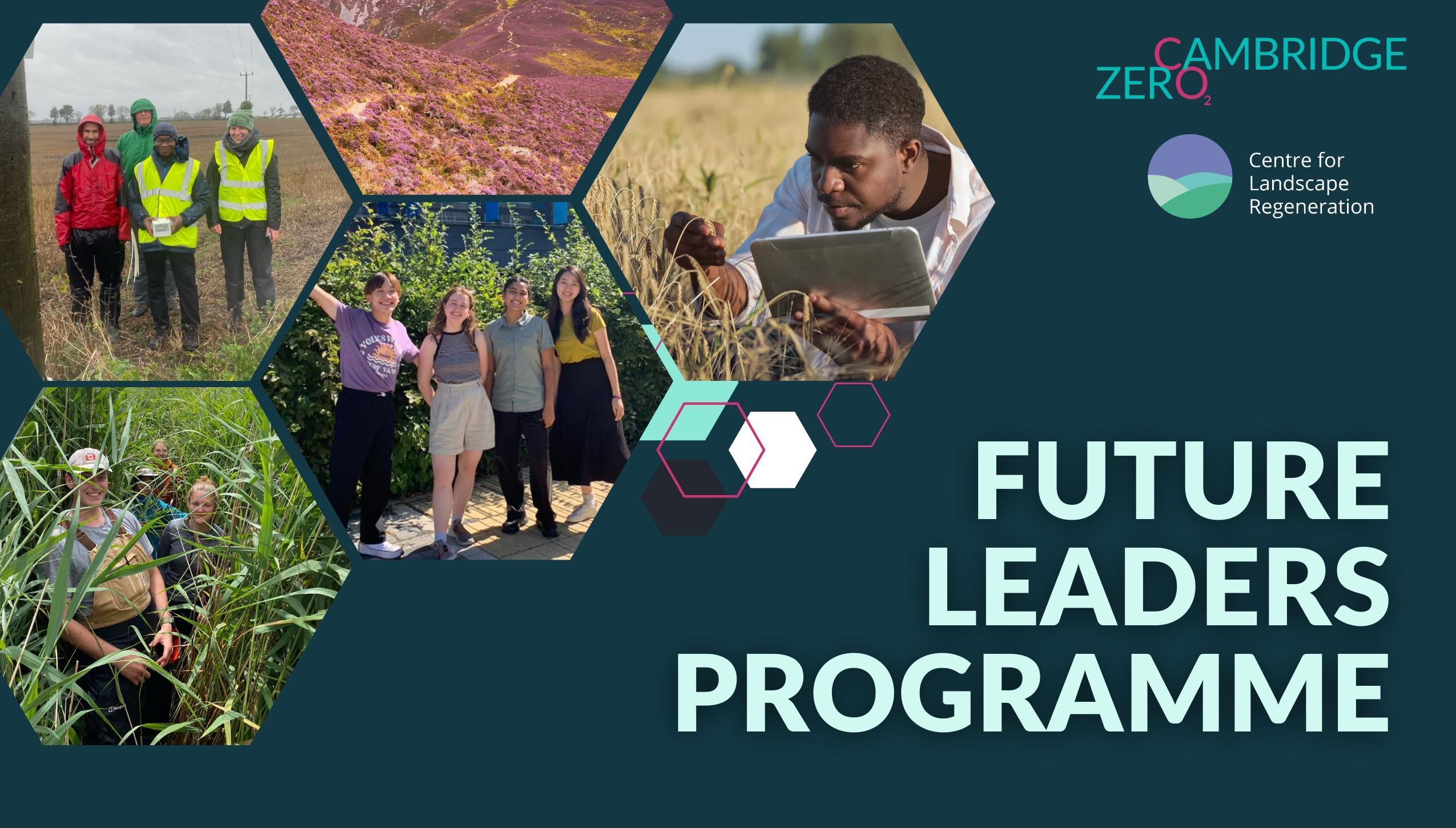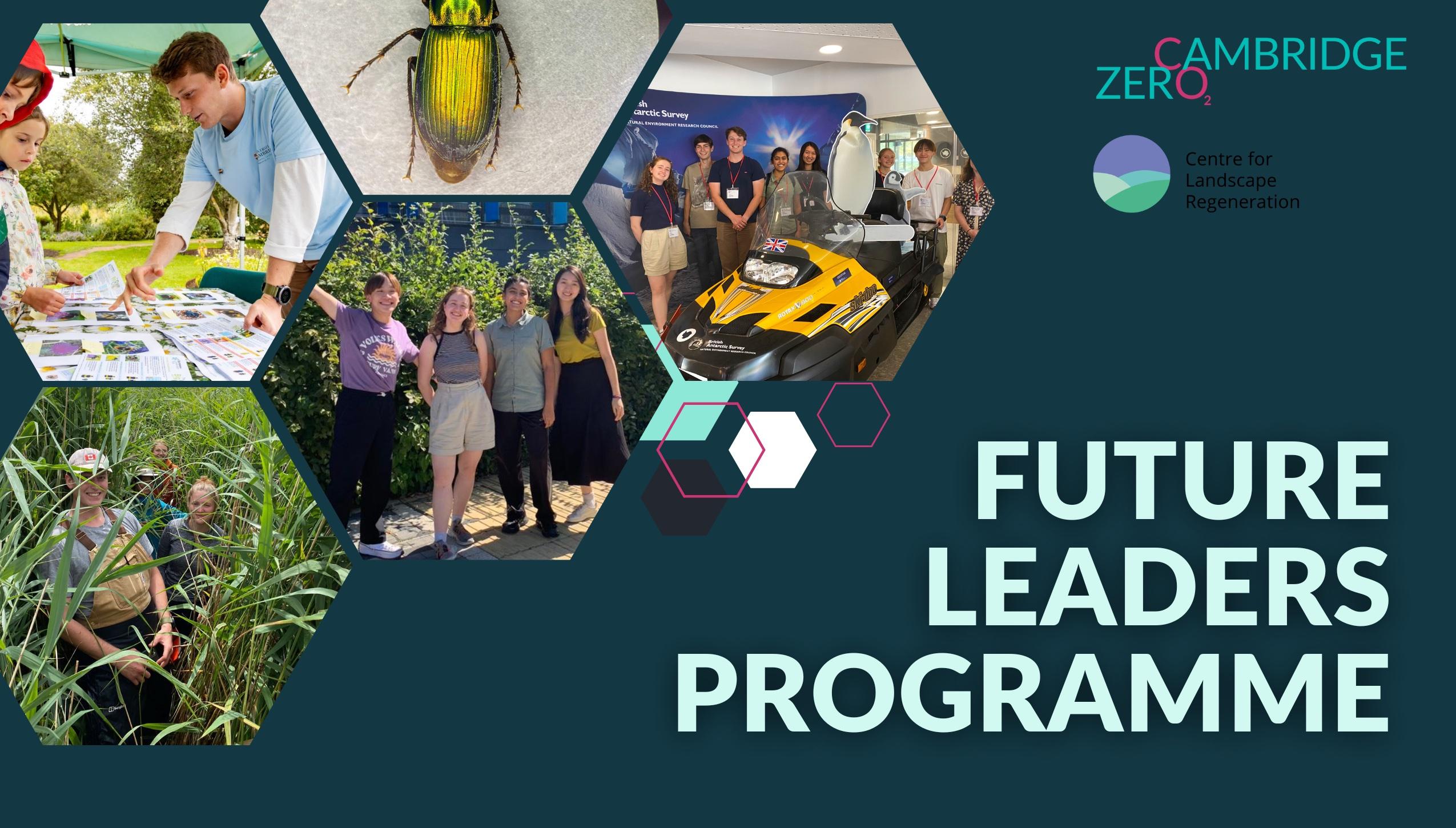Literacy is key to education, and education is the key to understanding the world we live in. The idea of environmental education is not new and although it was something that I experienced, first as an undergraduate and now as a postgraduate student, it wasn’t an experience accessible to every student at the University of Cambridge. With the climate crisis so wide in scope, affecting almost every aspect of society, it seems only natural that a multidisciplinary platform providing a formal education in these issues would be hugely beneficial. And this is where the Cambridge Carbon Literacy Project fits in; we aim to fill this niche as a new student-run environmental education programme. Our guiding focus is to not only provide participants with an awareness of the carbon costs and impacts of everyday activities, but also to empower everyone to take action both on a personal level and in wider society through education.
To give you more of a flavour of the course I (Will Moody – Carbon Literacy Project Officer – 3rd Year PhD student in Cancer Immunology at Queens’ College) spoke to a few of the participants from the last year who have learnt a new language: carbon…
May Ho – 2020 alumni – 1st Year Masters student in Sustainability leadership at Fitzwilliam College.
Kirsty Mackinlay – student trainer – 2nd Year PhD student in Embryology at Robinson College.
Verner Viisainen - student trainer – 4th Year PhD Student in Engineering at Pembroke College.
Artemas Nicoll Cowley – student trainer – Third year Undergraduate in Geography at Girton College.
Rosie Mellor – 2020 alumni – 2nd year PhD student in Material Science at Queens’ College.
I first asked everyone to cast their minds back to filling in that very first Google Form, and why they decided to sign up to Carbon Literacy in the first place?
May - I signed up to enhance my awareness of the carbon costs and impacts of everyday activities, also to motivate myself and influence people around me to reduce daily emissions.
Artemas - I decided to become Carbon Literate because I wanted to combine my passions for education and the climate crisis. Studying Geography I had always been interested in environmental issues but felt I lacked some knowledge on how to speak about the climate crisis and to take meaningful action.
Verner - I have been passionate for many years about highlighting key areas where the University can do better and the many ways students can get involved to drive change. I thought that through Carbon Literacy, I could not only do this, but also extend further to critical aspects beyond reducing individual footprints, such as global climate justice and need for structural change.
Kirsty – I feel that the path to realising the severity of the climate crisis is divided. On the one hand, with the ever-increasing volume of data evidencing both humans’ impact on the climate and the subsequent failures to act on such findings, we often find ourselves withdrawing from the issues and horror stories of burning forests and melting ice caps, desperate to convince ourselves ‘things aren’t really that bad… right?’ Yet, on the other hand, we feel simultaneously compelled to act and further the fight against the impending climate breakdown. Finding myself increasingly inclined to the former, I dared myself to embrace the latter, and, in doing so, signed up to become one of the first Student Trainers as part of Cambridge’s first Carbon Literacy Project
Rosie - Although I was already aware of the climate crisis, I felt that my education on this topic prior to the Carbon Literacy course had been limited and this was the perfect opportunity to expand my awareness and build my confidence for discussing these issues with friends and family.
I then asked everyone what they had enjoyed most about their experience on the Carbon Literacy course…
Verner – For me, it has been quite a journey from receiving the training in Manchester and getting carbon literacy accreditation, to preparing the Cambridge-specific course content and to then delivering the interactive webinars to students. What I have enjoyed the most has been helping to adapt the base course material to the Cambridge context. It is great that such flexibility in content is accommodated by accreditors as it makes the teaching all the more meaningful and impactful.
Kirsty - By both being trained, and training, I have felt encouraged to learn of new renewable energies, carbon neutral commitments and of the ease with which I can almost instantly reduce my own personal carbon footprint through relatively small lifestyle changes. I have also learnt that many people also share my sense of frustration, learning of the political inertia and stagnancy, of green-washing, of climate-anxiety and that through this educational programme we can begin to tackle these issues.
May - I feel I am more confident when discussing climate issues to family, friends and more generally in the wider community.
Rosie - The highlight of the course was being able to share ideas and discuss topics openly with a wide range of engaged people, each of whom had a different set of knowledge and interests in the regular interactive breakout rooms.
As part of the formal accreditation, each participant has to make a personal and group pledge to reduce their carbon footprint. I asked our alumni what they pledged, and how they were getting on a couple of months in…
May -
(1) Every Saturday I now host a vegetarian day for my household of 2 people. We try 3 meat-free recipes out per day and this can reduce my household carbon footprint on the day by over 50%!
(2) I also pledged to create 1 business case that analyses how to reduce the CO2 Kg equivalent per person, and push for approval for remote working policy for 500+ employees!
I’m pleased to report both are very much on track!
Artemas - I have pledged to reduce my meat consumption, which has allowed me to discover new meat substitutes that taste great! I have also been encouraging my household to use my clothes airer instead of using the tumble dryer which contributes to massive energy savings in our household.
Rosie - I pledged to not eat any meat from ruminant animals. Apart from one naughty beef burger, I have been successful in fulfilling my pledge so far and, in fact, I’ve gone beyond my original pledge and cut out almost all meat from my diet. Since the course, I have experimented with many meat substitutes to find the ones I like best, and this weekend I plan on making my first meat-free Bolognese sauce!
As well as having a dedicated Slack channel where all of our alumni stay connected beyond the course, we also offer everyone the chance to join our growing group of ‘Student Trainers’! ‘Student Trainers’ help design the course and also facilitate its running through taking lectures and leading the interactive breakout rooms. This not only offers the opportunity for further experience and qualifications, it also helps to scale up the programme even further! I asked some of our participants why they decided to continue as a trainer specifically.
Verner – As I mentioned earlier, I am very passionate about engaging as many students as possible in environmental issues at Cambridge. As a trainer, I have particularly enjoyed the breakout room function we use, which allow for a depth of discussion and knowledge exchange not possible during a (virtual) lecture.
May - I am committed to inspiring participants to tell evidence-based sustainability stories and empower people to lead by example and influence those around them to make a change!
Artemas - Being a trainer has been excellent as I have been able to have a big impact on people I wouldn't otherwise get a chance to meet. I love having a platform to discuss issues that are so important for the wellbeing of the planet and I have learnt a lot, not just from the other trainers but all the participants as well!
Finally I asked everyone for their final reflections and hopes for the future of the Carbon Literacy course in Cambridge…
Artemas - I would recommend the programme to anyone who has little knowledge of climate change or who wants to learn more about how to have a bigger influence on people around them.
Verner - I hope this project continues for many years to come and can be used as a basis for incorporating more carbon literacy into every course at the University as I think more widespread climate education is absolutely critical to accelerate our path towards net-zero emissions in the coming decades.
Rosie - I feel incredibly lucky to have been part of the first cohort of Carbon Literacy students at the University of Cambridge – and one of around 16,000 ‘Carbon Literate’ individuals in the world. I hope that many others can take this opportunity in the future as we all work together to achieve a carbon-neutral world.
Kirsty - The main thing that I continue to take away from the Carbon Literacy experience is that I am not alone in my journey, that there are so many others who are worried but also impassioned, who are determined to educate themselves and then, most importantly, to act.
Hopefully that gives you a flavour of the course, and if that sounds interesting to you, you can be part of it too! We are planning to run another session in the first weeks of Easter term (well before exams), and we will publicise the dates as soon as they are set. In the meantime, please check out our Facebook page for updates, and send us an email if you have any questions about the course or sing up here! We hope to see you on a Zoom call in the near future!



